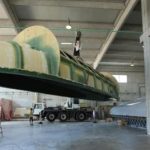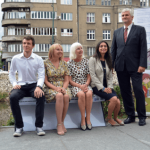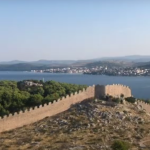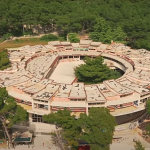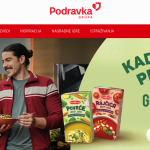As Poslovni Dnevnik/Sergej Novosel Vuckovic writes on the 22nd of November, 2019, entrepreneur Goran Mačinko has launched the only production of paper straws in Croatia and the region, which from 2021 will have to be used instead of plastic in the European Union. As a partner in Antela, 150,000 euros has now been invested, and the eco straws are already present in some retail chains, and will also be in hotels in Istria.
They look ”real”, and they are ”real”, and the future is already being produced right here with the production of paper straws in Croatia. The 31-year-old entrepreneur decided not to wait in 2021 when EU member states would have to ban the use of disposable plastic products, according to an EU directive which was passed this year, and started the production of paper straws in Croatia.
Straws, along with cutlery, glasses and other similar items, have just been blacklisted as plastic products in the EU, as they have been found to be among the biggest environmental nuisances, since they are mostly used once and then thrown away, creating waste that is difficult to dispose of, causing a growing environmental problem.
Mačinko is a partner and the co-owner of the Antela company registered near Poreč in Istria, which he founded back in 2015 with his Slovenian colleague Bostjan Zemljič, otherwise the founder of a company of the same name, which has been operating in neighbouring Slovenia since 2007. As a processor paper items, it processes about 400 tons per month and then sells 1000 tons.
“In Istria, Antela covers the Croatian market and will in the future open production facilities more closely geared to the needs of tourism. We’re engaged in the distribution of our own products from Slovenia as well as distribution of other brands, starting with paper items and all accompanying items (cleaning agents, reusable gloves, and all the little cleaning supplies,” Mačinko says before describing his business trip, which he recalls, in the winter of 2017, being ”born’ again” with the idea of paper straws.
“We realised that we knew about paper processing technology and that such an investment in manufacturing wouldn’t present a barrier to us. After studying the plastic straw market and the decision on the ban within the EU, this further encouraged us, and so we started,” Goran says.
But the startup of the plant based in Poreč was preceded by long and extensive preparations, including some trips to China. For some 8 to 12 months, they negotiated with manufacturers and potential suppliers of paper and equipment, toured plants in the Far East, inspected everything they were interested in, got organised and managed to get hold of the machinery and bring it from China.
“All Chinese manufacturers’ machines are made of stainless steel to meet the technical requirements of production. If you take the negotiation period into account, the machines have been being procured for more than a year and a half, and today we’re working closely with the manufacturer to troubleshoot. We’ve invested about 150,000 euros in the plant. The entire amount is from our own funds as a recapitalisation of the company by our Slovenian partners and by us. Additional investments required working capital and this was secured from Antela’s regular business,” Mačinko revealed.
He admits that the establishment of the facility was not without its initial growing pains which are quite characteristic of doing business here in Croatia.
“There were a lot of problems, there were initial hiccups, but we had no problems with the local and state institutions. All the procedures were clearly described,” Mačinko explains.
Today, according to the information available to them, they are the only operational manufacturer of paper straws in Croatia and the region. They received a lot of positive reactions and media attention.
According to Mačinko, they are now opening the door to contracting new jobs, with company revenues expected to be around two million euros this year alone, and they expect growth with a new product to be 30-35 percent, which will allow for more employment, as currently only five of them are working there.
“The potential has been recognised by two large hotels in Istria and we’re in negotiations and the test phase. We’re also in talks with a number of retail chains where some have already placed the products on their shelves,” Mačinko says.
Make sure to follow our dedicated Made in Croatia page for much more.


